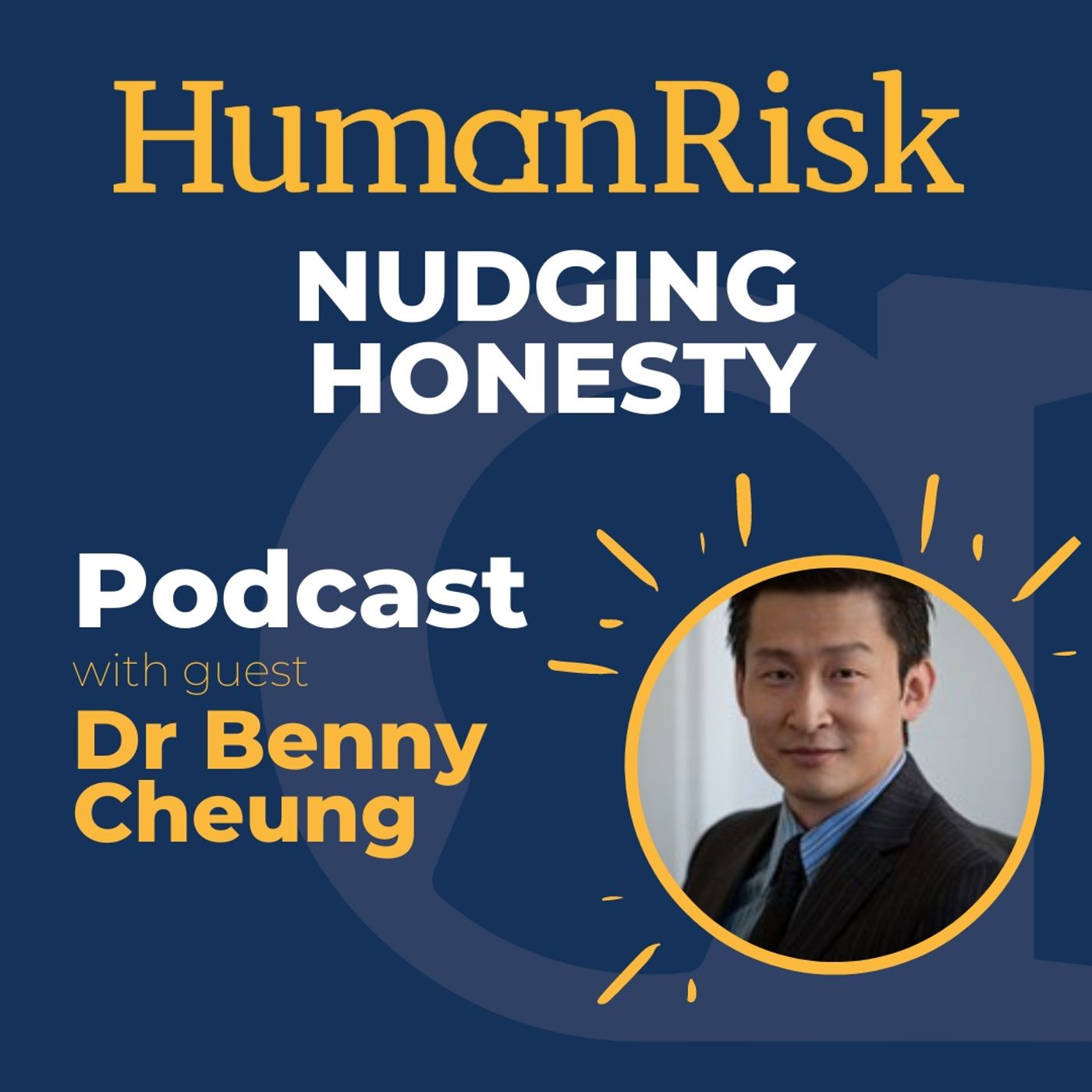Dr Benny Cheung on Nudging Honesty

How can we get people to be more honest? That's what my guest on this episode, Dr Benny Cheung, set out to discover. He was commissioned to do so research for the UK's Insurance Fraud Bureau and ran some experiments to see if it would be possible to...
How can we get people to be more honest? That's what my guest on this episode, Dr Benny Cheung, set out to discover. He was commissioned to do so research for the UK's Insurance Fraud Bureau and ran some experiments to see if it would be possible to reduce opportunistic fraud in insurance processes using Behavioural Science. The results suggest that it is.
Given my personal experience with insurance hasn't always been positive, I thought this was worth exploring. So on this episode, I talk to Benny about his work and what we can learn from it. It's relevant to Human Risk, because if we can get people to change their behaviour when they're engaging with an industry they probably don't respect that much, then there are definitely lessons for Compliance, where the attitude may be somewhat similar.
In our discussion, I explore what we can learn from Benny's research and the other insights he's gleaned in his work.
For more on Benny and his company DecTech, visit https://www.dectech.co.uk/
You can read about his experiment here: https://dectech.co.uk/insurance-fraud-prevention/
In our conversation, we talk about Lemonade, an insurer that has a behaviourally-centric business model: www.lemonade.com




















